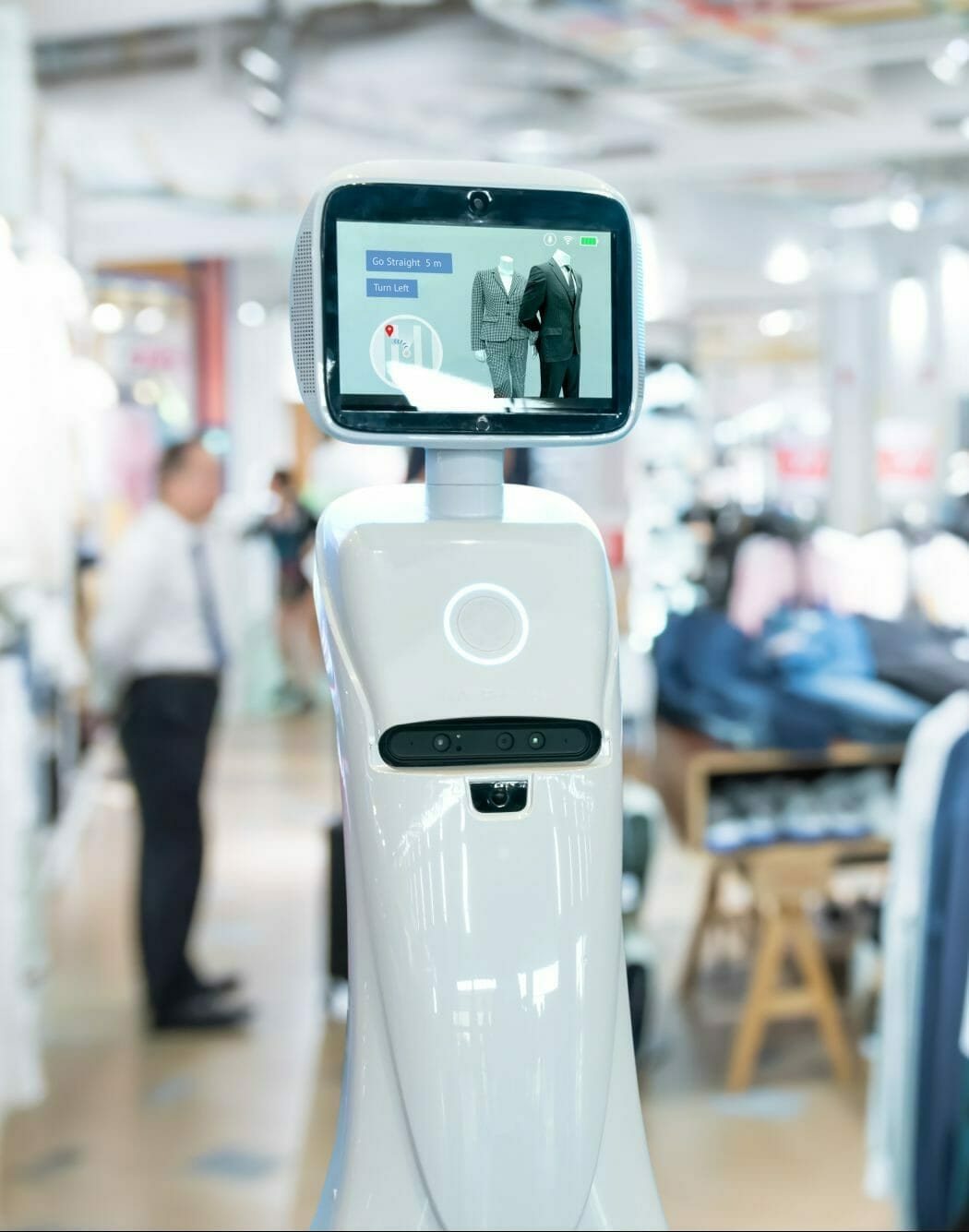Perhaps more than any other sector, manufacturing must respond to constant fundamental changes in products, customer groups and markets. Over the years that has led to some major structural upheavals. As a result, radically new types of production have emerged, using water and steam power in the first industrial revolution, and electricity in the second. The third industrial revolution focused on the use of computers and introduction of IT to manufacturing. Now the fourth industrial revolution, Industry 4.0, is changing manufacturing again, by introducing the networking of digital technologies.
Let’s explore what Industry 4.0 means, what technological innovations are included, and how you can make the most of this new opportunity for your company.
What is Industry 4.0?
Governments around the world have introduced initiatives to strengthen their manufacturing industry with new technology. For instance, the Chinese government’s “Made in China 2025” strategy seeks to increase the use of innovative technology to update and expand its domestic industry.
One of the first references to ‘Industry 4.0’ came from the German government. Its 2013 technology strategy planned the promotion of the manufacturing sector and its development into a high-tech industry. Now the term is used more broadly for any industry where production is optimised through information and communication technology.
Digitalisation and smart manufacturing in Industry 4.0
Digitalising production allows you to transform your production facility into a smart factory. It makes your machines more efficient and automates numerous processes throughout the factory. With Industry 4.0 networked processes you can monitor the status of production, simplify internal communications and receive real-time data about your products and deliveries – even remotely. That’s a significant advantage, especially for companies with many locations spread across one or many countries.
You can also use Industry 4.0 technology to connect your company with materials suppliers and logistics and service providers, for instance to make supply chains transparent or manage just-in-time deliveries.
Four innovative technologies for intelligent production processes
Digital technologies have developed more quickly and continuously in recent years than in almost any other sector. Now digital transformation is opening up new perspectives and opportunities for the manufacturing industry – provided you choose technologies that can be introduced smoothly and profitably for your company. Four main technologies are most applicable, and therefore of most interest, to manufacturing:
Cloud Computing and Software
A wide range of information and communication applications on the cloud can help everything from managing suppliers and resources to handling customers. They include platforms for resource planning (ERP, Enterprise Resource Planning), programmes for voice communication and cloud storage of data. Manufacturing companies are already benefiting from solutions that optimise production to minimise or completely avoid downtime.
Internet of Things (IoT)
The Internet of Things enables the networking of physical and virtual objects. For example, you can control devices and machines throughout your factory using applications on smartphones, tablets or computers. Or you can use IoT solutions to collect data: for error analysis, process evaluation or a general overview of your production. IoT will even help you keep an eye on production status and reject rates.
Artificial Intelligence (AI)
AI enables computers and machines to solve complex tasks independently and to develop processes further through independent machine learning. That can increase productivity and improve safety in your factory, by automating individual procedural steps and even entire processes. You can also use AI to create sales forecasts and make your production more cost-effective through smart planning.
Big Data
Big Data refers to the collection, evaluation and profitable use of large amounts of data. Manufacturing measures and records countless variables and values, and now Industry 4.0 solutions make it possible to document and analyse them all with very little effort. Use the data to make more effective decisions, spot opportunities for process optimisation and identify ways of boosting productivity in your company.
Not all Industry 4.0 technologies make sense for every company. But there is a field of application for each of the innovations mentioned, many specifically designed for manufacturing industry. A clever combination of different solutions is often more transformative and successful than investing exclusively in one area.
Two challenges of digitalisation for manufacturers
Manufacturing companies are already realising rewards from digitalising their factories and supply chains in the wake of the fourth industrial revolution. However, the most innovative solutions are also technologically demanding. They bring two specific challenges:
Connectivity: Fast connection for full networking
In a recent survey of manufacturing companies by the Association of German Chambers of Industry and Commerce (DIHK), 35% of respondents said that the internet at their location is not fast enough. This is problematic in every sector, and can be a serious competitive disadvantage in the digitalised manufacturing industry. Good internet connection means more than just stable reception. To introduce and benefit from digital solutions, companies need reliable connectivity and high-quality connections. That’s important at the basic level of internal and external communication, and essential for remote management and access to your production resources.
The importance of good connectivity is especially evident for multinationals. If your headquarters are in Europe and your production facility is many thousands of kilometres away, connectivity is usually only possible through digital channels. Conferencing, data transmission, production monitoring and the efficiency of your whole business depend on good, reliable network performance. Poor connectivity can lead to production downtime and stoppages, and that’s a major drain on your finances and on the trust of your customers and partners.
- Our tip: Choose Dedicated Internet Access (DIA), Internet access that’s exclusively for your company rather than shared. When considering office or factory locations check the quality of the local connection, especially if you’re opening a production site in a new country or region. If you can, choose an area that has both superior network quality and excellent market potential. China/APAC, for example, has the largest 5G network in the world and 70 per cent of the world’s 5G base stations. Korea and Thailand have a strong 5G network and other APAC countries such as Singapore and Vietnam plan 5G rollouts in the near future. The APAC market not only offers good technological conditions, but also enormous sales potential for European manufacturing companies.
Digital infrastructure: The foundation of innovative technologies
It’s not just reliable broadband access that’s essential to achieving the results you expect from your Industry 4.0 solutions. Your entire digital infrastructure – including hardware, computers and mobile devices – must be fit for purpose. You need a corporate network, for example a wide area network (WAN), and appropriate protection against cybercrime. Cloud applications will allow you to decentralise storage of machine, process and company data and create new storage capacity for IoT solutions.
Setting up digital infrastructure for your business is demanding. It requires investment and expertise to plan and install – and that’s particularly crucial when you’re launching in a new country.
- Our tip: Work with experts to design and implement your digital infrastructure. This way, your systems will be customised to cover every part of your business. Your digital solutions will work together harmoniously to deliver the precision that’s so important in manufacturing industry. Choose solutions from a single source to increase production reliability. Remember that specialists aren’t just for new projects. They’re also invaluable for optimising existing infrastructure to improve productivity and efficiency in your company.
Four advantages of networked production
Networked production using Industry 4.0 technology can bring huge benefits to manufacturing companies, at every stage of planning, production and distribution.
Increase productivity and efficiency in your company
Improved communications, information exchange and scrutiny are valid ends in themselves. They are also the building blocks of higher productivity and greater efficiency. Many of the digital solutions around Industry 4.0 can help. Tools and platforms facilitate communication, for example through video conferencing and online meetings. Cloud applications allow you to make information accessible to all your teams, regardless of location. And there are many new ways to monitor production in real time so you can act quickly if production is disrupted.
Optimise and automate processes
Optimisation is perhaps the most important outcome from applying networking and Industry 4.0 in manufacturing. It can start with simply reading machine data, to give an AI tool the basis for creating improvement strategies. AI can go further, by providing forecasts and recommendations for action and then, along with IoT, by introducing autonomous working in your production. Automated processes don’t just improve productivity and efficiency, they can also increase safety in your company.
Save resources and increase profitability
With data-based solutions, you can make stock levels, consumption patterns and supply chains transparent. This can identify supply bottlenecks, and also make surplus and wasted resources more visible. With more intelligent data you can introduce appropriate measures throughout the production cycle that reduce costs, manage resources more efficiently, and increase profits.
Connect every element of the supply chain
Many Industry 4.0 solutions offer smart interfaces so you can integrate and connect your existing databases, platforms and applications, such as ERP and similar business software. With detailed and accurate information accessible company-wide in real time, for suppliers and service providers too, expect a radical reduction in errors and misunderstandings. Intelligent networking can also unify internal and external processes, which in turn has an impact on overall business efficiency.
Learn more about the opportunities of networked production
Industry 4.0 and networked production present wide-ranging opportunities for manufacturing companies. Networked machines, self-controlling production processes and digital concepts [JK1] could secure the future competitiveness of your company. The companies that succeed will be those that can create a robust and future-proof digital infrastructure, underpinned with fast, reliable, high-quality connectivity.
For multinational companies in the manufacturing industry, and those seeking to add production sites in new regions, professionals who combine technical expertise and local knowledge are the key to unlocking the potential of Industry 4.0.
Would you like to learn more?
Find out more about our Solutions for Manufacturers.
Download our free whitepaper “Challenges for manufacturers in adopting data-driven production and networks“ for deeper insights into digitalisation in the manufacturing industry and invaluable tips on how you can tap into the China/APAC market with Industry 4.0 solutions.
















 Return to Blogs & Related News
Return to Blogs & Related News

